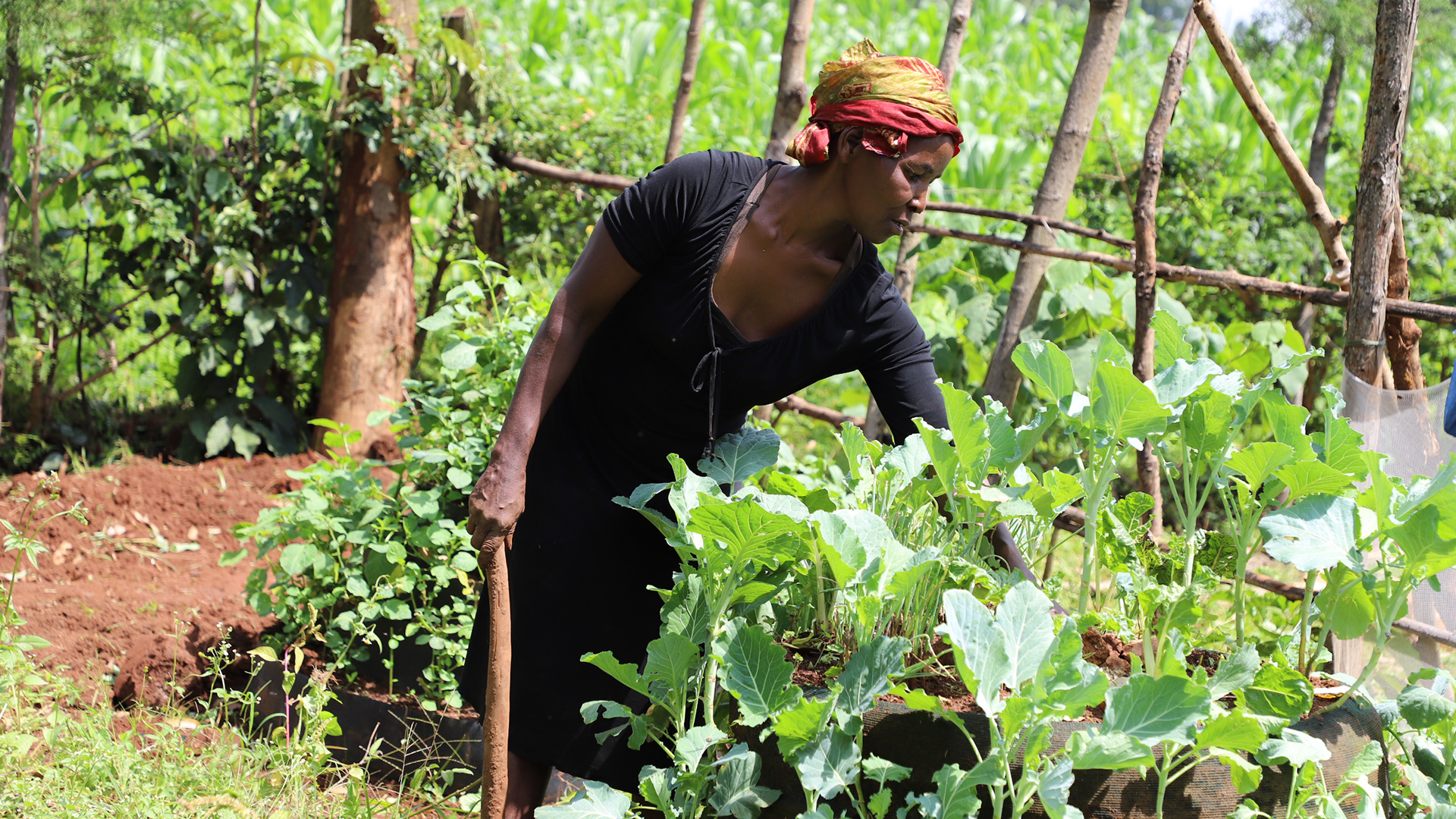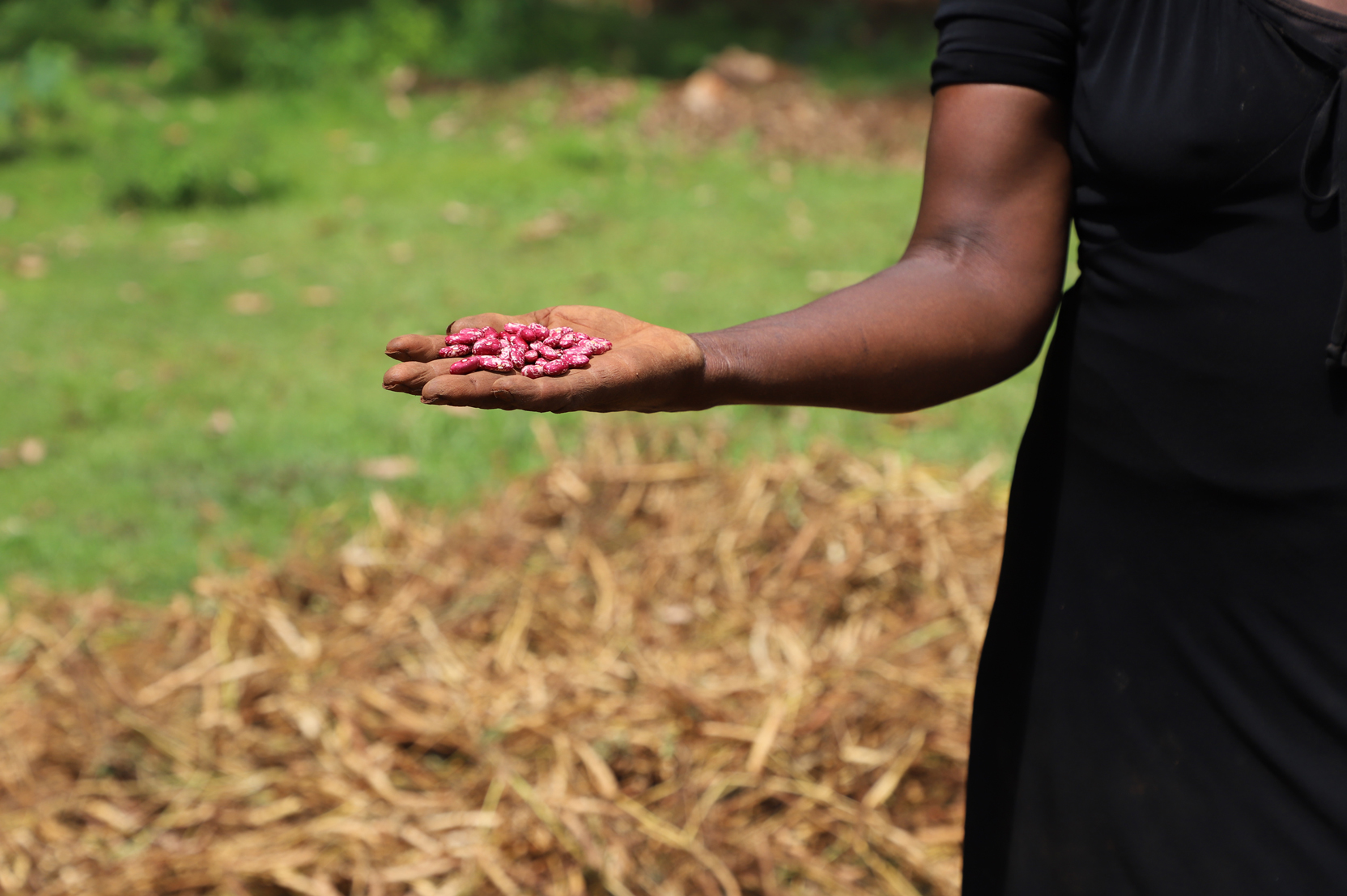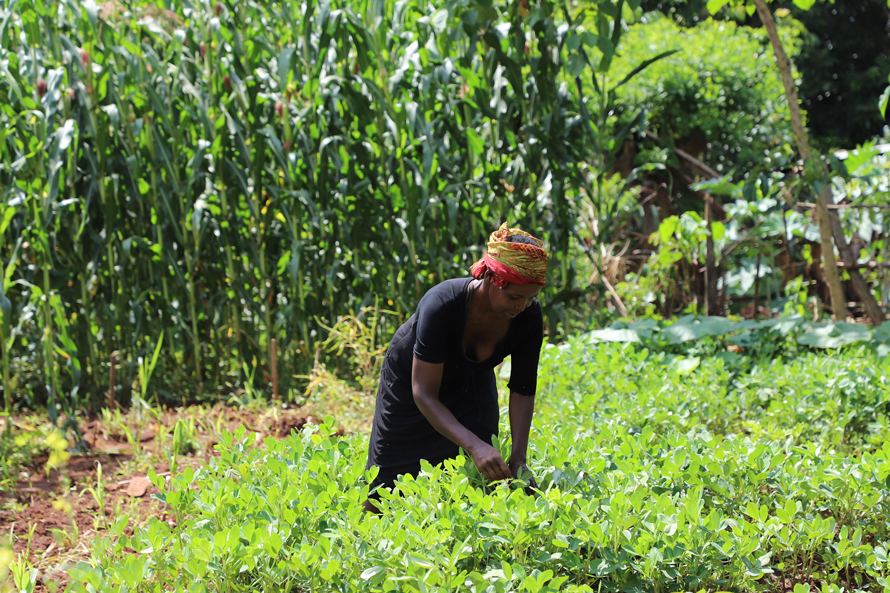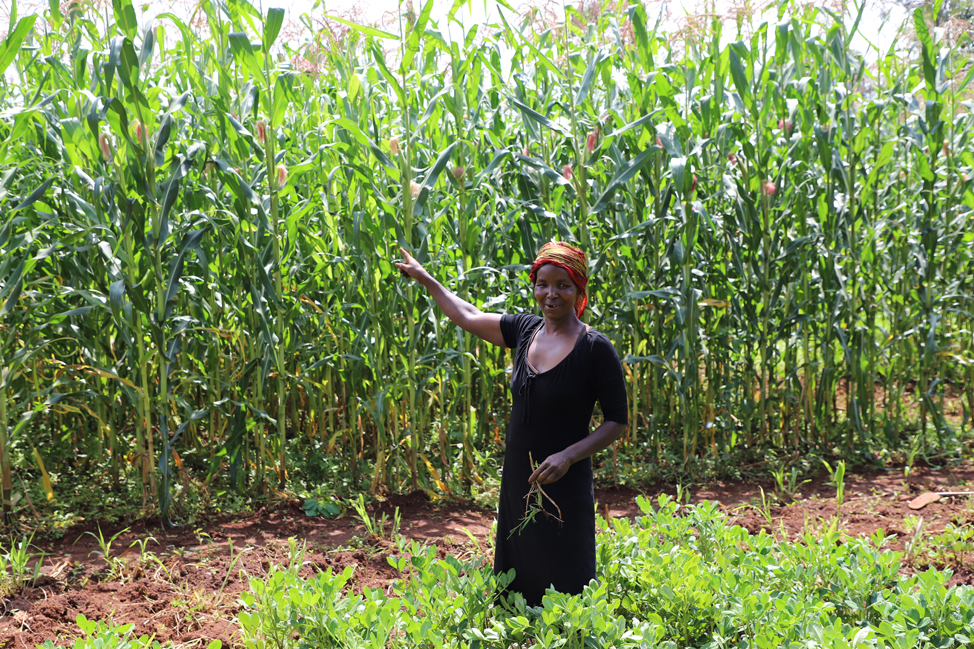
Resurrecting dead soils
“BOOST”-ing production in Kenya by digging into the causes of farming problems
Agnes Barasa and her fellow farmers were not aware that burning crop residues were harming their soils. Implemented by FAO and IFAD together with the Kenyan government and with funding from the European Union, the BOOST initiative taught them about good practices for soil health. ©FAO/Pauline Akolo
02/07/2025
As you watch Agnes Barasa tending the organic mulch around her green vegetables in the backyard, you might think it is an ordinary scene. Yet three years ago, this patch was all dry, with no sign of the kale, beans and tomatoes there today.
This year, unlike in the past, Agnes is not worried. She has enough corn, groundnuts, bananas and vegetables to make a living and feed her household of five children.
It hasn’t always been this way. Since she moved to the village of Maeni in Kenya’s Kimilili sub-county after her marriage two decades ago, the harvests had always been poor. Despite her hard work on the farm, her family was perpetually short of food.
Much of this could be explained by outdated farming practices – like burning crop residues after harvests.
“I am among the farmers that used to burn maize residue and dry vegetation in the fields, oblivious of the harm I was causing my soil,” Agnes confesses.
The way she acquired this crucial new understanding was through the training in agroecological practices provided by a project called BOOST.
The BOOST project is being implemented by the Food and Agriculture Organization of the United Nations (FAO) together with the Government of Kenya and International Fund for Agricultural Development (IFAD), with funding from the European Union (EU).
The way Jimmy Mweri, the FAO coordinator for the BOOST project, explains it, one of the main causes of poor harvests was not just sick soils but “dying soils.” Farmers were not aware that soils can suffer “malnutrition” and that they can be diagnosed by a technician with a portable scanning device to find out what exactly is amiss. In many instances, this turns out to be low levels of phosphorus and high acidity.
“I had never known that, like other living things, the soil is living and if it is sick, it can be taken to hospital and be treated,” Agnes adds with a hearty laugh.
Other problematic farming practices included turning or digging up soils after every planting season, leaving the soil bare over prolonged periods making it lose moisture easily, and therefore, susceptible to erosion and loss of biodiversity.
In Agnes’ case, the root of the problem goes back to when she and her husband mainly cultivated sugarcane. Before long though, sugarcane cultivation started facing challenges including late or meagre payments for the crop, leading the couple, like many other farmers, to abandon it for corn. But the practice of monocropping and prolonged use of chemical fertilisers among other factors, resulted in soils being acidic and poor.
Putting into practice the knowledge from the BOOST training, Agnes learned to be aware of the deficiencies and needs of her soils and turn the state of the land around by applying organic mulch and using organic fertiliser produced from her farm.


Agnes learned to apply organic fertiliser produced on her farm. As a result, her vegetable garden is flourishing. ©FAO/Pauline Akolo
Thanks to all these approaches, Agnes is celebrating a historic corn harvest from the long rains. This leap from three bags to 15 bags has restored her belief in agriculture.
“I am a happy lady because my soil is yielding where it did not,” Agnes recounts.
Her vegetable garden is also flourishing because of the bio fertilisers, pest and disease control products and certified hybrid seeds provided by the project along with the training in their correct use. Practices such as Integrated Pest Management, intercropping and crop rotation as well as post-harvest management have also been crucial to the improvements she has seen.
Based on her own experience, Agnes is now a trainer of farmers in her village and beyond. She plans to upscale her kitchen garden to produce more vegetables for both domestic and commercial purposes, while also hoping to harvest even more corn next season.

Agnes is training other farmers in the techniques she has learned. She plans to upscale her kitchen garden to produce more vegetables, such as corn, in the upcoming season. ©FAO/Pauline Akolo
Overall, in the region, there is much work to be done as climate change, including reduced and erratic rainfall and increasing numbers of pests, coupled with poor soil husbandry practices have pushed agricultural production in the area to a new low.
Implemented in five counties in Kenya, the BOOST initiative is reaching 40 000 farmers to raise awareness of what exactly is hindering their progress in order to reverse this trend.
To help achieve this, the project has set up ten agroecology service hubs to support farmers. These are agroecological learning and service provision centres managed by youths who have been trained through the BOOST project, providing a useful source of employment for the young people, most of them just out of college.
Through these hubs, farmers learn about various agroecological practices according to their zones and receive services such as land preparation, planting, irrigation, composting, agroforestry pest and disease control, harvesting and aggregation, at a reasonable fee.
The BOOST initiative is helping farmers bring new life to soils which will in turn provide a new life of better nutrition and food security.
Related links
Learn more
- Website: FAO country profile: Kenya
- Website: Agroecology Knowledge Hub

